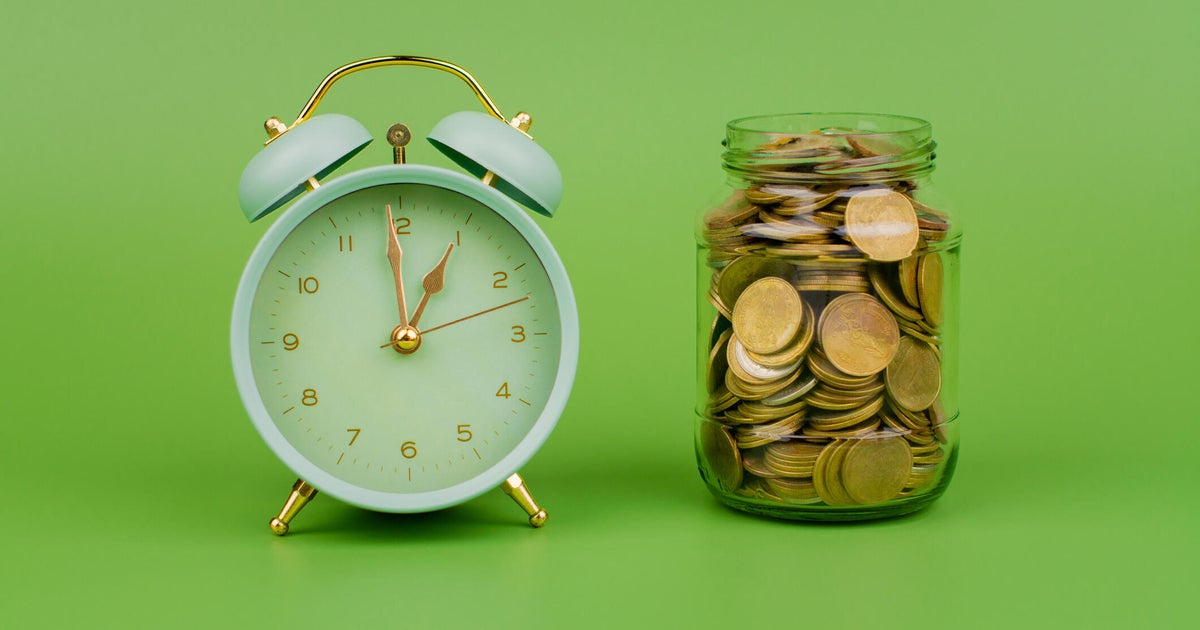3 great reasons to open an online savings account this month
Persistent inflation has led to elevated interest rates over the last two years. Although that means borrowing has been more expensive, saving has become more profitable. High-yield savings accounts, for example, currently come with annual percentage yields (APYs) up to about 5.50%.
With inflation currently sitting at 3.5% per year, moving money into a high-yield savings account can help you keep up and earn a little extra. But which institutions are offering the highest net returns? In many cases, it's online banks.
Compare the top rates you can earn on your savings today.
3 great reasons to open an online savings account this month
Online banks offer some of the most competitive high-yield savings accounts on the market — combining higher returns with the flexibility and security you expect from a savings account. Here are a few good reasons why you may want to open one this month.
Higher APYs
When looking at traditional savings accounts nationwide, the average APY sits at just 0.46% as of April 2024. Returns in that ballpark don't come close to helping you keep up with inflation. In turn, they won't be the best place to keep your savings.
Many online banks, on the other hand, are offering rates from 4% to 5% or higher. They often have less overhead than brick-and-mortar banks and aren't as popular. As a result, they try to earn the attention and business of customers by offering accounts with higher APYs, fewer requirements and lower fees.
On the downside, if you like to be able to walk into a bank and talk to a person about your accounts, that won't be an option with an online bank.
"What you give up in personal connection and communication, you can gain in rate of return and accessibility," says Ryan Moore, financial advisor at TBS Retirement Planning.
Learn more about your online high-yield savings account options here.
Flexibility
Online high-yield savings accounts also provide the same flexibility as traditional savings accounts, which other interest-yielding accounts like CDs lack. You're not required to leave your money in the account for any set amount of time.
That said, some banks restrict the number of transfers you can make from your savings account each month, so be sure to understand all of the restrictions and requirements before opening one.
Security
Another benefit of online savings accounts is that they come with very little risk. Your APY can drop because the rates are variable on these accounts, causing you to earn less, but you're not going to lose the money you've deposited or the interest you've earned.
And, as long as you choose an FDIC-insured bank or NCUA-insured credit union, up to $250,000 per account, per depositor, will be safe — even if the institution goes bankrupt.
"Some people who have always banked with a local branch with a physical presence may be uncomfortable with the idea of switching to an online-only bank. But so long as the online bank is FDIC-insured, your funds will be every bit as safe as they are with a traditional bank," says Todd Stearn, founder and chief executive officer of the Money Manual.
Take advantage of high savings account APYs while you can
Online high-yield savings accounts are worth considering in all economic environments but are especially attractive right now due to the higher-than-usual rates. However, that may change later this year as the Fed has forecasted rate cuts.
If you'd like to take advantage of the elevated rates while you still can, shop around and compare savings accounts based on the following factors:
- APYs: The amount you'll earn per year on your account balance.
- Minimum deposit requirements: The amount you have to deposit to open the account and earn the APY.
- Minimum balance requirements: The amount you have to keep in the account to earn the APY.
- Fees: Amounts you pay for owning the account and/or using certain aspects of it.
"There can be many fees that a bank may charge that can add up," says Kendall Meade, financial planner at SoFi.
For example, fees for overdrafts, ATM use, not maintaining a minimum required balance and more. Meade says that too many fees can end up negating the benefits of a high APY.
The bottom line
On a final note, a savings account should only be one part of a larger financial plan. They're great for housing emergency funds and savings for short-term goals but you'll also want to other accounts in place. For example, a high-yield checking account is better for holding money you'll use within a month's time, while a 401(k) or IRA is better for retirement savings.




